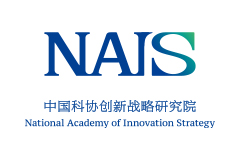
Profile
As the largest non-governmental organization of scientific and technological professionals in China, the China Association for Science and Technology (CAST) serves as a bridge that links the Communist Party of China and the Chinese government to the country's science and technology community. Through its 210 national member societies and local branches all over the country, CAST maintains close ties with millions of Chinese scientists, engineers and other professionals working in the fields of science and technology.
The history of CAST can trace back to the eve of the founding of the People's Republic of China in 1949 when a number of the nation's primary scientific and technological organizations gathered at a meeting to call upon the country's science and technology community to dedicate all their efforts to the building of New China. The meeting led to the birth in 1950 of two new national organizations — the All-China Federation of Natural Science Societies and the All-China Association for Science Popularization. In September 1958, the two organizations decided at their joint congress to merge into a unified single organization — the China Association for Science and Technology.
Since its inauguration, CAST has made significant contributions to the prosperity and development of science and technology, to the popularization of science and technology among the public, to the emerging of large numbers of professional talents, and to the overall economic and social development in China.
As the bridge linking Chinese science and technology community with the Communist Party of China and the Chinese government, CAST is a constituent member of the country's top political advisory body — the Chinese People's Political Consultative Conference (CPPCC), where it joins all the political parties and other social groups in the state affairs through political consultation, policy-making and democratic supervision.
CAST maintains cooperative relations with scientific and technological organizations of many countries and, as the representative of the Chinese science and technology community, is the national members of ICSU, WFEO and many other international scientific and technological organizations. In 2004, CAST was granted consultative status with the Economic and Social Council of the United Nations.
The highest leading organ of CAST is the National Congress that meets every five years and the National Committee elected by it. The President of the current National Committee is Prof. Dr. Wan Gang. The Secretariat appointed by the National Committee is responsible for the daily operation of CAST, which is headed by the Chief Executive Secretary — Prof. Dr. Huai Jinpeng.
Major tasks of CAST include:
1) to carry out academic exchanges, activate academic thinking, promote the development of all scientific disciplines, and stimulate independent innovation.
2) to organize scientific and technological professionals to contribute to the establishment of a technological innovation system that takes enterprises as the main body and can significantly enhance the enterprises' innovation ability.
3) to carry forward the scientific spirit, popularize scientific knowledge and disseminating scientific ideas and methods according to the Law of the People's Republic of China on Science and Technology Popularization; uphold the dignity of science, promote the application of advanced technologies, encourage and organize science educational activities among children and youth, and improve the scientific literacy of all citizens.
4) to reflect suggestions, opinions and demands of scientific and technological professionals, and safeguard their legitimate rights and interests.
5) to push forward the establishment and improvement of a research integrity supervision mechanism, and promote the construction of scientific ethics and a fine style of study.
6) to organize scientific and technological professionals to participate in the making of science and technology-related policies and laws; organize scientific and technological professionals to participate in the political consultation, scientifically informed decisions and democratic supervision of state affairs.
7) to recognize and reward outstanding scientific and technological professionals, and recommend scientific and technological talents.
8) to provide scientific augmentation and consulting services, and policy advice, facilitate the transformation of research results; undertake project evaluation and appraisal, participate in the formulation of technical standards, professional qualification accreditation.
9) to organize international science and technology exchange programs, promote international scientific and technological cooperation, and develop cooperative relations with scientific and technological organizations and personnel worldwide.
10) to carry out continuing education and training programs.
11) to develop social and public welfare institutions cohering to the aim of the China Association for Science and Technology.
Our website is: